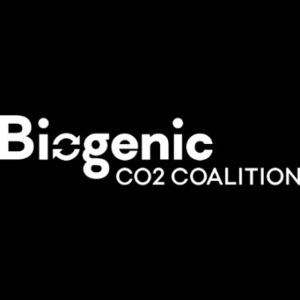Governors urge EPA to address biogenic CO2 barrier

November 24, 2020
BY Biogenic CO2 Coalition
The Biogenic CO2 Coalition, a working group of leading trade associations that support American agriculture, on Nov. 19 commended a bipartisan group of six U.S. governors who are urging the U.S. EPA to take prompt, science-based action to keep the United States from falling behind its competitors in the international bioeconomy.
In a letter sent to EPA Administrator Andrew Wheeler, a group of state governors led by Govs. Kim Reynolds (IA) and Pete Ricketts (NE) called on the EPA to promulgate a rulemaking that recognizes the de minimis character of biogenic carbon emissions from agricultural feedstocks used to make food, fuel, beverages, or bioproducts. The Biogenic CO2 Coalition recently filed a petition for rulemaking with the EPA, providing a detailed explanation of the scientific and legal basis for a de minimis standard for biogenic CO2 from agricultural crops. Further, the Coalition recently published an economic impact analysis demonstrating the significant economic benefits of this proposed reform.
Advertisement
Joining Governors Reynolds and Ricketts in signing on to the letter were: Govs. Pete Ricketts (NE), Asa Hutchinson (AR), Laura Kelly (KS), Michael Parson (MO), and Kristi Noem (SD). This call for action is a recognition that this long-overdue regulatory clarity would put the U.S. in line with the same standards applied by every other regulatory authority worldwide in acknowledging that biogenic carbon emissions from agricultural feedstocks are different than carbon from fossil fuels.
“Support for critical reform of this regulatory burden continues to build. We must follow the scientifically backed evidence to open opportunities for American farmers nationwide and develop the broader bioeconomy,” said Thomas Parks, Biogenic CO2 Coalition spokesperson. “A de minimis standard would invigorate the American heartland and bring economic growth to rural America, creating thousands of jobs and hundreds of millions in wages for American workers in the food and agriculture sectors.”
EPA remains the only regulatory authority in the world that fails to distinguish between biogenic CO2 emissions and those from the use of fossil fuels. Included in the Coalition’s petition for rulemaking is a survey of 108 peer-reviewed journal articles concerning biogenic CO2 emissions from annual agriculture crops. One hundred four of the articles found show biogenic CO2 emissions from agriculture crops “are completely balanced by biomass regrowth over a short period of time.”
Advertisement
This is not the first instance of Gubernatorial support for the EPA to implement this rulemaking. Govs Kim Reynolds (IA), Pete Ricketts (NE), Eric Holcomb (IN), Matt Bevin (KY) recently sent a letter to EPA Administrator Andrew Wheeler requesting regulatory clarity for annual farm crops. Earlier this year, a bipartisan group of 13 U.S. House lawmakers have also urged the agency for action on the same issue.
Related Stories
The Michigan Advanced Biofuels Coalition and Green Marine are partnering to accelerating adoption of sustainable biofuels to improve air quality and reduce GHG emissions in Michigan and across the Great Lakes and St. Lawrence Seaway.
The USDA reduced its outlook for 2024-’25 soybean oil use in biofuel production in its latest World Agricultural Supply and Demand Estimates report, released April 10. The outlook for soybean oil pricing was revised up.
Sen. Roger Marshall, R-Kan., and Rep. Marcy Kaptur, D-Iowa, on April 10 reintroduced legislation to extend the 45Z clean fuel production credit and limit eligibility for the credit to renewable fuels made from domestically sourced feedstocks.
Representatives of the U.S. biofuels industry on April 10 submitted comments to the U.S. Department of Treasury and IRFS providing recommendations on how to best implement upcoming 45Z clean fuel production credit regulations.
EIA reduces production forecasts for biobased diesel, increases forecast for other fuels, including SAF
The U.S. Energy Information Administration reduced its 2025 forecasts for renewable diesel and biodiesel in its latest Short-Term Energy Outlook, released April 10. The outlook for “other biofuel” production, which includes SAF, was raised.
Upcoming Events










